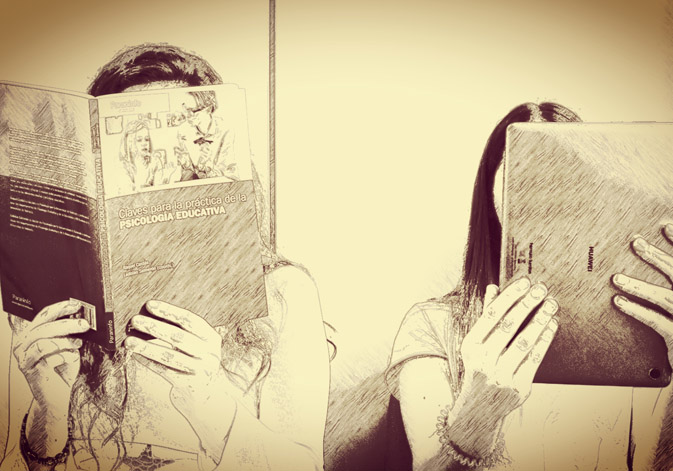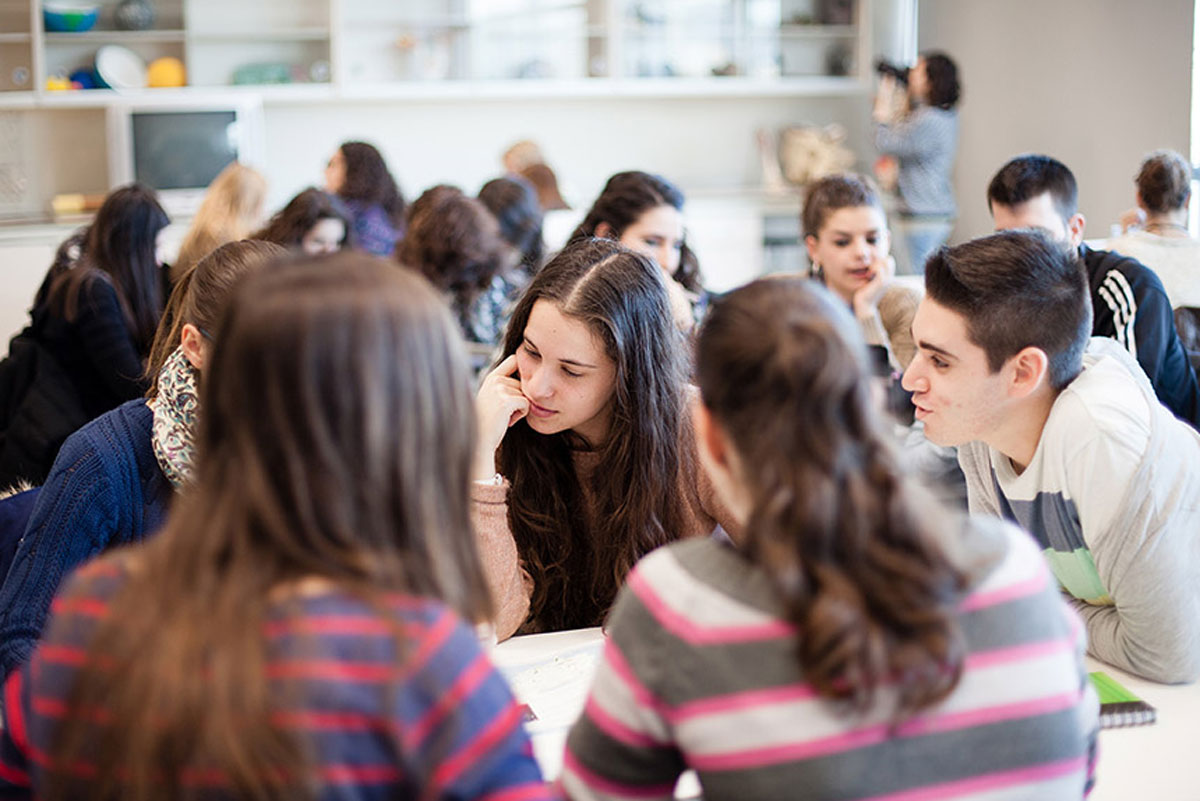The ERI Reading of the University shows that reading on paper is more effective than on digital devices
- Scientific Culture and Innovation Unit
- October 23rd, 2018

A study led by the Interdisciplinary Research Structure for Reading research (ERI Reading) of the University of Valencia has shown the so-called “paper superiority effect”: people understand better the same text if they read it on paper than if they read it in digital format (for example, on tablets or computers). These conclusions are a novelty in the scientific literature to the extent that the introduction of new technological means in schools is nowadays more frequent.
The research has been led by Pablo Delgado, Cristina Vargas and Ladislao Salmerón, from the Faculty of Psychology, with the collaboration of Rakefet Ackerman, of the Institute of Technology of Israel, and has been co-funded by the European project COST E-READ and by a project of the Ministry of Economy and Competitiveness. The article “Do not throw away your printed books: A meta-analysis on the effects of reading media on reading comprehension” has been published in the journal Educational Research Review, number 3 in the JCR rankings of the Education & Educational Research category.
The superiority effect of paper depends, according to the research, on several factors. First of all, temporary pressure: reading on paper is more effective when it is done with limited time. Second, the textual genre. In this sense, the study shows that the paper format is more appropriate in informative texts than in narrative ones.
Regarding the profile of the reader, Ladislao Salmerón asserts that the superiority of paper increases in people under twenty years. “The generation that is now 16 years old shows a greater effect of paper superiority than that shown by previous generations. To be clear, new generations understand even more on paper than on digital devices, compared to previous generations.”
According to the researcher from the Department of Evolutionary and Educational Psychology, the conclusions of the article, extracted through a varied meta-analysis, acquire importance from the educational point of view. The introduction of new technological means to schools is becoming more frequent “without robustly assessing their effects on learning and reading comprehension”.
This meta-analysis has been prepared based on data from more than 170,000 participants, ranging from primary to adult age and from more than ten different countries.
Article:
Delgado, Pablo; Vargas, Cristina; Ackerman, Rakefet and Salmerón, Ladislao: «Don’t throw away your printed books: A meta-analysis on the effects of reading media on reading comprehension». Educational Research Review. Num. 3, vol. 25, November 2018, pp. 23-38. https://doi.org/10.1016/j.edurev.2018.09.003
















